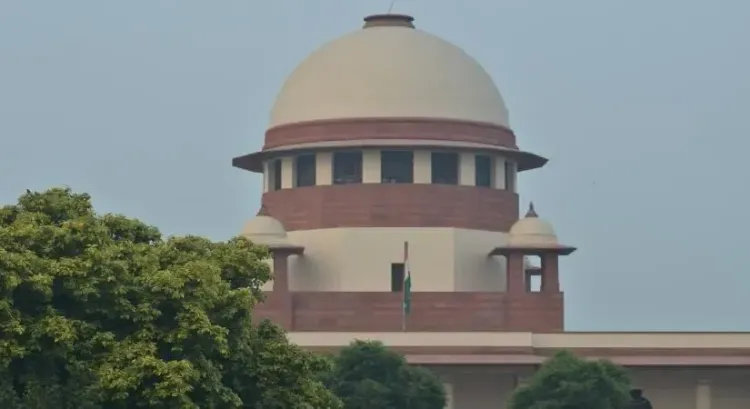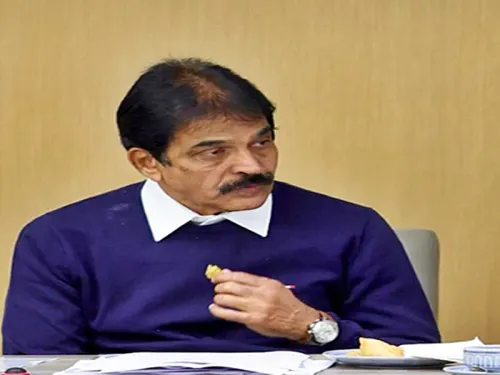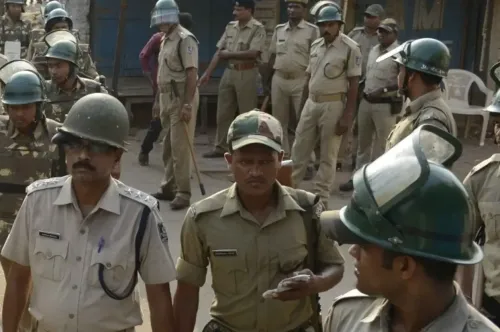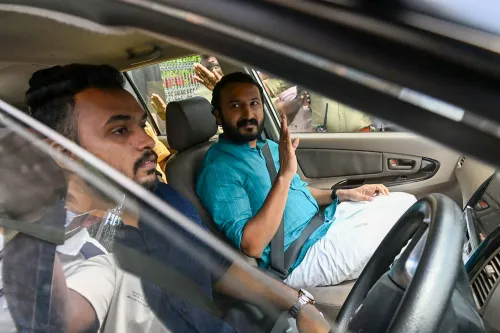Did the SC make the right call by ordering the POCSO convict to surrender?

Synopsis
Key Takeaways
- The Supreme Court overturned a Rajasthan High Court ruling.
- Convict is ordered to surrender by August 30.
- The court emphasized the importance of victim protection in legal proceedings.
- The DNA report played a significant role in the case.
- Justice must prevail in cases involving serious offenses against minors.
New Delhi, Aug 6 (NationPress) The Supreme Court on Wednesday nullified a Rajasthan High Court ruling that had temporarily halted the sentence of a man found guilty of raping a minor, instructing him to report to the special POCSO court in Karauli by August 30.
A bench consisting of Justices B.V. Nagarathna and K.V. Viswanathan granted the appeal made by the minor victim’s father, asserting that the reasoning provided by the Rajasthan High Court "was severely lacking in the necessary criteria for granting bail to a convict sentenced for such a grievous crime after suspending the sentence."
The convict received a 20-year rigorous imprisonment sentence along with a fine of Rs 50,000 for violations under Section 3/4(2) of the Protection of Children from Sexual Offences (POCSO) Act.
The trial court based its decision on the victim’s testimony, which was supported by her parents and additional documentation verifying her age. It also invoked the statutory presumption as outlined in Sections 29 and 30 of the POCSO Act.
Despite the forensic report being outstanding, the trial court stated that "the DNA report could only serve as corroborative evidence" and emphasized that its absence did not diminish the strength of the prosecution’s argument.
However, in September 2024, the Rajasthan High Court suspended the sentence, arguing that "no indications of sexual assault were identified by the medical expert on the victim’s body; no FSL or DNA report is available; and considering the availability of washrooms, it’s hard to believe the victim would not have used them." Additionally, the court mentioned that the convict had "valid reasons" to challenge the trial court's conviction.
The Supreme Court disagreed with this perspective, stating: "The conclusion that no sexual assault occurred, without a comprehensive examination of the evidence, is completely untenable."
The bench led by Justice Nagarathna highlighted that according to Section 389 of the CrPC, post-conviction bail should only be granted if there is "something evidently significant on the record that leads the court to preliminarily believe the conviction might not hold." Furthermore, the apex court acknowledged the delayed DNA report indicating "the presence of male DNA/semen from the accused on the victim’s private areas and clothing."
While the Supreme Court refrained from discussing the merits, it noted that the DNA report emphasized the gravity of the crime and left the prosecution free to present this evidence.
Stating that the Rajasthan High Court "was unjustified in suspending the sentence," the bench permitted the appeal from the victim’s father and directed the convict to surrender, cautioning that state police must apprehend him if he fails to comply. The apex court clarified that it had not reviewed the case's merits, and its comments were solely focused on nullifying the suspension order.









